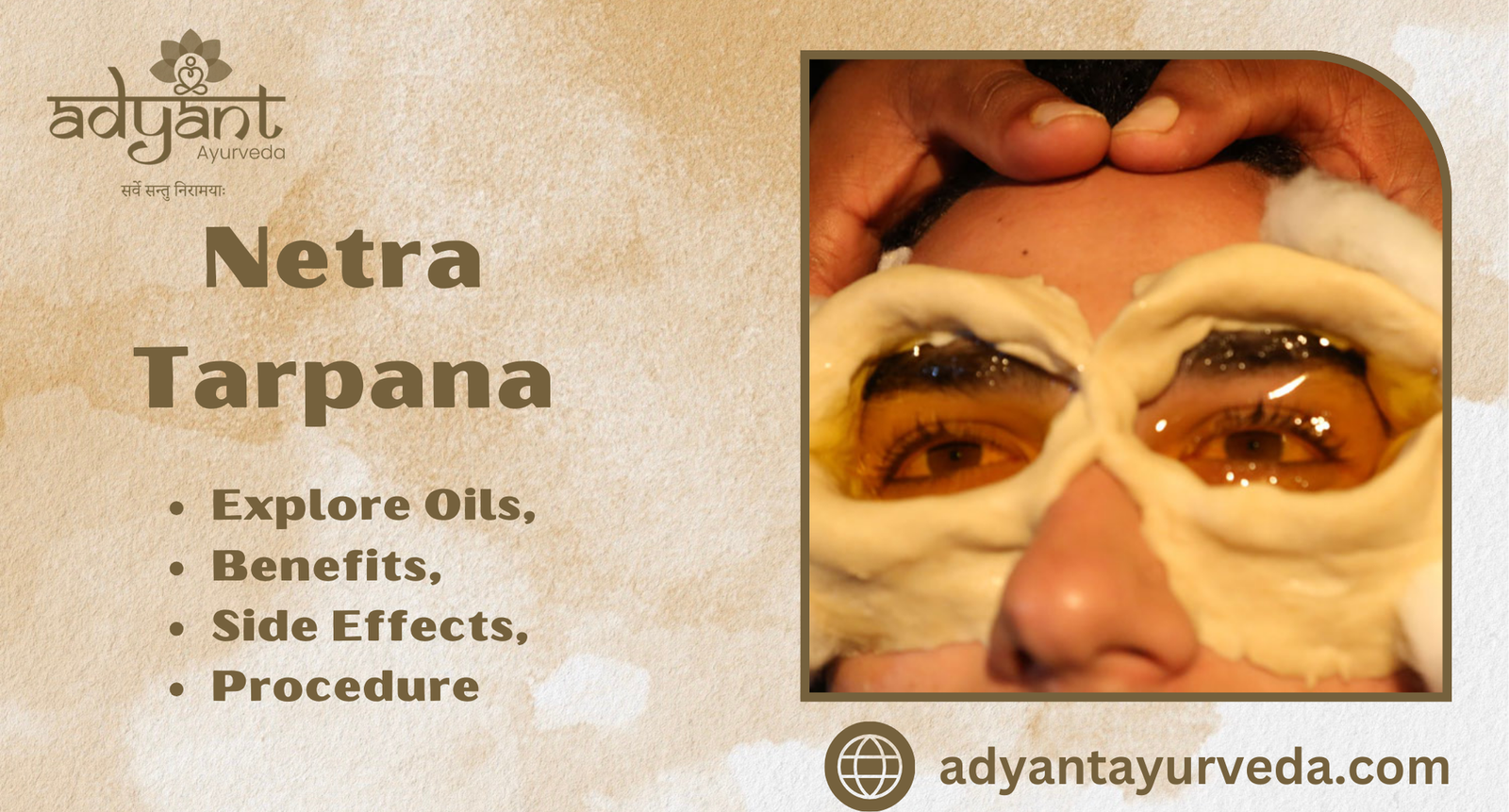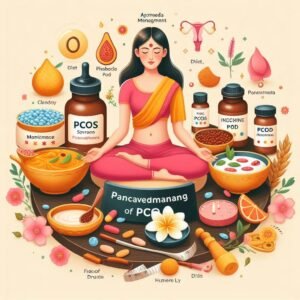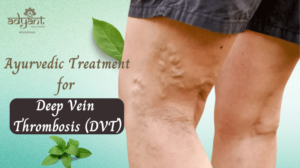Table of Contents
ToggleWhat is Netra Tarpana?
Netra Tarpana, also known as Akshi Tarpana or Netra Basti, is a classical Ayurvedic therapy designed to rejuvenate and nourish the eyes. The term Tarpana means “nourishment” or “satiation,” and in this context, it refers to the deep nourishment of ocular tissues using medicated ghee (clarified butter) or herbal oils.
The therapy involves creating a well around the eyes using dough (made of black gram flour or wheat flour) and filling it with warm, medicated ghee. The patient keeps their eyes open and closed intermittently, allowing the therapeutic agents to be absorbed into the ocular tissues, thereby relieving fatigue, dryness, irritation, and improving visual acuity.
Scientific and Ayurvedic Foundations
According to Ayurvedic texts like Ashtanga Hridaya and Sushruta Samhita, Netra Tarpana balances the Pitta and Vata doshas—the primary doshas responsible for eye disorders. Pitta governs vision and metabolism in the eyes, while Vata controls movement and dryness.
🔬 Modern Scientific Correlation
Lipid therapy and ocular emollient treatments used in allopathy for dry eye conditions resonate with Netra Tarpana’s ghee-based application.
Studies have suggested that Triphala Ghrita, a commonly used ghee in Netra Tarpana, exhibits antioxidant, anti-inflammatory, and antimicrobial properties beneficial for eye health (Source: Journal of Ayurveda and Integrative Medicine, 2011).
A study published in Ayu (2010) demonstrated the effectiveness of Netra Tarpana in managing Computer Vision Syndrome.
Procedure of Netra Tarpana
🔹 1. Preparation Phase
Dough Ring Creation: A dough dam is built around the eyes using black gram or wheat flour to form a leak-proof boundary.
Positioning: The patient lies on a treatment table with eyes gently closed.
🔹 2. Application Phase
Ghee Infusion: Warm, medicated ghee (e.g., Triphala Ghrita, Jivantyadi Ghrita) is poured into the dough ring until it fully immerses the eyes.
Eye Movements: The patient is guided to blink, open, and move the eyes gently to ensure optimal absorption.
🔹 3. Retention Duration
The ghee is retained for about 15 to 30 minutes, adjusted per the condition and practitioner’s recommendation.
🔹 4. Post-Therapy Phase
The ghee is removed gently.
The area is cleaned using herbal decoctions (like Triphala Kashaya).
Eye drops or soothing herbs may be administered post-session.
Types of Medicated Ghee Used
| Type of Ghrita | Key Ingredients | Primary Benefits |
|---|---|---|
| Triphala Ghrita | Triphala, ghee | Improves vision, manages eye strain, and helps in myopia and glaucoma |
| Mahatriphala Ghrita | Triphala, Yashtimadhu, Daruharidra, other herbs | For dry eyes, chronic conjunctivitis, and ocular allergies |
| Jivantyadi Ghrita | Jivanti, Yashtimadhu, Chandan | Soothes burning sensation and nourishes tired eyes |
Conditions Treated by Netra Tarpana
Netra Tarpana is effective for both preventive and therapeutic eye care. It is commonly prescribed for:
✅ Computer Vision Syndrome
✅ Dry Eye Syndrome (Shushkakshipaka)
✅ Myopia (Timira)
✅ Hypermetropia (Drishti Mandya)
✅ Early-stage Cataract (Linganasha)
✅ Conjunctivitis
✅ Macular Degeneration
✅ Glaucoma (Adhimantha)
✅ Blepharitis
✅ Ptosis (Netra Sramsa)
Key Benefits of Netra Tarpana
🔹 Enhances Visual Clarity – Improves eyesight in early-stage vision problems.
🔹 Nourishes Eye Tissues – Deeply hydrates and revitalizes the optic tissues.
🔹 Relieves Digital Eye Strain – Ideal for people exposed to long screen hours.
🔹 Soothes Redness and Irritation – Especially in cases of allergies or pollution exposure.
🔹 Slows Degenerative Changes – Helps prevent age-related disorders like cataracts or macular degeneration.
🔹 Strengthens Ocular Muscles – Helps with conditions like ptosis and fatigue.
🔹 Balances Doshas – Removes excess Pitta and Vata from the eyes.
Potential Side Effects (If Performed Improperly)
While Netra Tarpana is generally safe, the following issues may occur if not performed under qualified supervision:
| Possible Side Effects | Causes |
|---|---|
| Temporary blurry vision | Due to oily residue |
| Allergic reactions or irritation | Sensitivity to herbs used |
| Eye heaviness or discomfort | Prolonged retention time |
| Risk of infection | Unhygienic equipment or environment |
| Aggravation of acute eye diseases | Inappropriate selection of candidates |
Precautions & Contraindications
❌ Avoid Netra Tarpana in:
Severe eye infections or acute inflammation
Recent eye surgery or trauma
Severe fatigue or emotional distress
During extremely hot or cold seasons
On cloudy or stormy days (as per Ayurvedic seasonal regimens)
Clinical Evidence and Research Highlights
A study published in the Ayu Journal (2010) demonstrated that Netra Tarpana using Triphala Ghrita significantly improved symptoms of dry eye and computer vision syndrome.
Triphala, the main ingredient in Triphala Ghrita, has been shown to exhibit antioxidant, antimicrobial, and anti-inflammatory properties that help in managing degenerative and inflammatory eye disorders.
A comparative pilot study (2016) indicated that Triphala-based Tarpana provided better symptomatic relief than artificial tears in dry eye syndrome patients.
Conclusion: A Holistic Solution for Modern Eye Problems
In an age of digital overload, environmental stress, and lifestyle-induced eye fatigue, Netra Tarpana emerges as a time-honored, non-invasive Ayurvedic solution for comprehensive eye care. Rooted in ancient wisdom and increasingly supported by modern scientific research, it offers deep nourishment, detoxification, and revitalization of ocular tissues.
Whether you’re suffering from dry eyes, digital fatigue, or seeking preventive care for vision wellness, Netra Tarpana can be a powerful addition to your self-care regimen. However, always consult an experienced Ayurvedic practitioner to determine its suitability and ensure a safe, personalized experience.
🏥 Looking for the Best Ayurvedic Eye Care in Bangalore?
At Adyant Ayurveda, we offer authentic Netra Tarpana treatments under the guidance of expert doctors trained in Ayurvedic ophthalmology. With years of expertise, hygienic practices, and customized formulations like Triphala Ghrita and Jivantyadi Ghrita, we ensure safe, effective care for your eyes.
📍 Visit us at our branches in Jayanagar, Indiranagar, Kalyan Nagar, or Rajarajeshwari Nagar.
📞 Book your consultation: 9972541009
Frequently Asked Questions (FAQs) About Netra Tarpana
1. What is Netra Tarpana and how does it work?
Netra Tarpana is an Ayurvedic eye treatment where medicated ghee is retained over the eyes using a dough well. This nourishes the ocular tissues, relieves dryness, and enhances vision by balancing Pitta and Vata doshas.
2. Is Netra Tarpana painful?
No, Netra Tarpana is a soothing and relaxing therapy. There is no pain involved. Some patients may feel mild heaviness or warmth, which is temporary.
3. How long does each Netra Tarpana session last?
A typical session lasts 30 to 45 minutes, including preparation, ghee retention, and post-care cleaning. The retention time of ghee is usually between 15 to 30 minutes.
4. How many sessions are required for the best results?
It depends on the condition being treated. For general eye strain or dryness, 5 to 7 sessions are usually sufficient. Chronic conditions like myopia, dry eye syndrome, or computer vision syndrome may require 10 to 15 sessions, sometimes repeated in cycles.
5. Who should undergo Netra Tarpana?
Ideal candidates include:
People with dry eyes or computer vision syndrome
Those with blurry vision or early-stage cataracts
Individuals experiencing eye fatigue, burning, or irritation
Elderly patients to delay age-related vision degeneration
6. Are there any side effects of Netra Tarpana?
When performed correctly by trained Ayurvedic professionals, Netra Tarpana is very safe. Rare side effects may include:
Temporary blurred vision (due to ghee film)
Mild heaviness
Allergic response to herbs (rare)
7. Can Netra Tarpana be done at home?
It is not recommended to attempt this therapy at home. Proper hygiene, selection of herbs, temperature control, and ghee preparation are crucial for safety and effectiveness. Always consult a qualified Ayurvedic doctor.
8. What medicated ghees are commonly used in Netra Tarpana?
Common formulations include:
Triphala Ghrita – for general eye health and vision enhancement
Mahatriphala Ghrita – for chronic conditions like glaucoma and dry eyes
Jivantyadi Ghrita – for burning eyes and inflammation
9. Can it improve eyesight or cure glasses power?
Netra Tarpana may improve vision quality, reduce eye strain, and delay the progression of refractive errors. However, it is not a replacement for glasses or surgery. It works best as a complementary therapy for holistic eye care.
10. Is Netra Tarpana safe for children?
Yes, under proper supervision and with age-appropriate formulations, Netra Tarpana can be safely done for children suffering from digital strain, itchy eyes, or vision weakness.
11. Are there any dietary or lifestyle restrictions during the treatment?
Yes. During treatment, it’s advisable to:
Avoid spicy, oily, and junk food
Limit screen time
Wear protective glasses while outdoors
Avoid exposure to wind, smoke, or dust
12. What is the cost of Netra Tarpana therapy in Bangalore?
The price varies depending on the clinic, the quality of ghee used, and the number of sessions. At Adyant Ayurveda, a single session typically starts from ₹1200 to ₹1500, with discounted packages available for multiple sessions.






